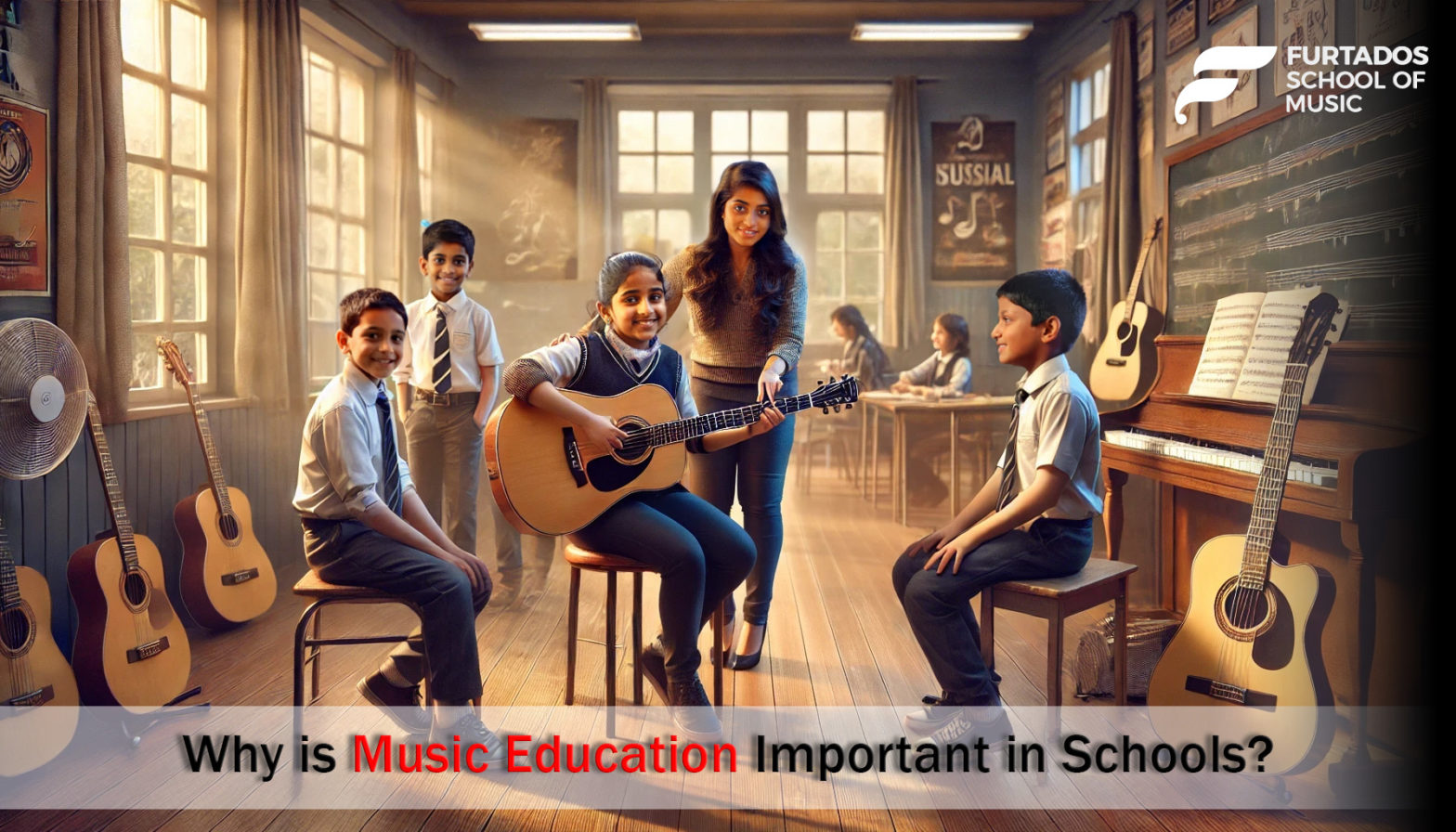Music education is more than just learning to play an instrument or sing a song. It plays a crucial role in the overall development of students, fostering a range of skills that are valuable throughout their lives. This blog will explore the importance of music education in schools, supported by data and statistics that highlight its impact.
The Impact of Music Education: Data and Statistics
Research shows that music education can significantly benefit students academically and socially. According to a study by the National Association for Music Education (NAfME), students who participate in music programs score on average 22% higher in English and 20% higher in math standardized tests compared to their peers who do not participate in music. Additionally, schools with music programs have graduation rates of 90.2% compared to 72.9% for schools without them.Music Education Important
Enhancing Academic Performance
Music education has been proven to boost academic performance across various subjects. Learning to read music and understand rhythms can improve students’ reading and math skills. The process of learning music involves recognizing patterns, which translates to better problem-solving abilities in subjects like mathematics.
Developing Social Skills
Participating in music programs, such as school bands or choirs, teaches students the importance of teamwork and collaboration. They learn to listen to each other, coordinate their efforts, and work towards a common goal. These social skills are essential in all areas of life, from personal relationships to professional environments.
Encouraging Creativity and Expression
Music is a powerful medium for creativity and self-expression. It allows students to explore their emotions and express themselves in ways that words alone cannot. This creative outlet is especially important during the formative years, helping students develop their unique voices and build confidence in their abilities.
Building Discipline and Patience
Learning an instrument or mastering a piece of music requires dedication, practice, and patience. These qualities are cultivated through music education and are valuable life skills that benefit students in all aspects of their lives. The discipline learned through regular practice can translate into better study habits and a stronger work ethic.
Fostering Emotional Well-Being
Music has a profound effect on emotions. Engaging in music education can reduce stress, improve mood, and provide a healthy outlet for emotional expression. Students who participate in music programs often report higher levels of happiness and satisfaction with their school experience.
Promoting Cultural Awareness
Music education introduces students to a wide range of musical genres and cultures, broadening their understanding of the world. This exposure helps foster cultural awareness and appreciation, encouraging students to be more open-minded and empathetic towards different perspectives.
Integrating Advanced Music Courses with FSM:
Schools can take music education to the next level by integrating Furtados School of Music’s (FSM) advanced music courses into their curriculum. FSM’s courses are internationally benchmarked, offering students a comprehensive music education that aligns with global standards. These courses cover various instruments, vocals, and music theory, providing students with a well-rounded musical foundation.
One of the key benefits of partnering with FSM is that students can receive accredited certificates from Trinity College of London, a prestigious institution recognized worldwide for its excellence in music education. This accreditation adds significant value to students’ musical achievements, enhancing their credentials and providing them with opportunities for further education and career prospects in music.
Additionally, FSM’s courses are taught by some of India’s best instructors, who bring a wealth of experience and expertise in teaching instruments, vocals, and related subjects. These instructors are passionate about nurturing young talent and ensuring that students receive the highest quality of music education.
Conclusion: Investing in the Future
The benefits of music education in schools are clear. It enhances academic performance, develops essential social skills, encourages creativity, builds discipline, fosters emotional well-being, and promotes cultural awareness. By investing in music education, schools are investing in the future success and well-being of their students.
Incorporating FSM’s advanced music courses into school curricula provides students with an internationally recognized education in music, guided by India’s top instructors. This integration not only enriches students’ learning experiences but also equips them with valuable skills and qualifications that can open doors to future opportunities.
In conclusion, music education is not just an extracurricular activity—it is a vital component of a well-rounded education. The data and statistics speak for themselves, showing that music education positively impacts students’ lives both inside and outside the classroom. By adopting advanced music programs like those offered by FSM, schools can ensure that their students receive the best possible education in music, preparing them for a bright and successful future.
